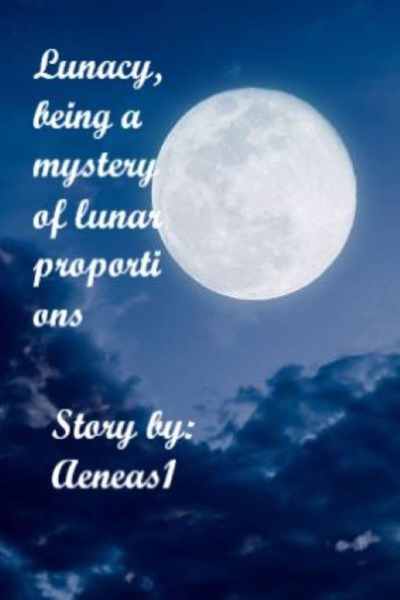It took me what must have felt like hours to take the drink, and once I was done, I lay back on the bed once more. One cannot control when one falls asleep, and I certainly couldn’t. By the time I was asleep, I barely noticed until I was too late. The nightmares were back. In one dream, I saw a crow, sitting atop a mountain of skulls in the moonlight. I looked closer and found that it was eating an eyeball, and the very sight of it made me feel sick. The dream shifted. I was walking up a wooden scaffold, which formed part of the turret of a medieval castle. A gallows was suspended in the air by a long pole and upon it a skeleton hung, dressed in ragged dirty clothes. I felt compelled to walk through a door at the top of the scaffold, but I turned my mind and walked away. Darkness crept on me again. I heard that same song, playing over and over again.
If ever thou gavest hose and shoon
Any neet and all
Sit noo doon and put them on
And Christ receive thy soul.
The following morning’s schedule proceeded as usual. I helped Mr Harris with his washing, and made Mrs Nollys’ morning bath using the kettle, which I had to fill up afterwards at a fountain in her garden. It was then that I helped Mrs Scratch with her knitting. I hadn’t expected any less of her than to take up knitting – all old women did knitting. They usually made scarves and all that sort of thing. I never really could understand why old women did that, but nevertheless, I’d seen various films and shows where old women knitted. I used to sneak inside a local library to watch that stuff. That afternoon, I went to Mr Jones’ house to help him with his cleaning. He had been married, of course, but his wife had passed. Mr Jones was the person who’d been on the bicycle when I set foot in the village. He worked as the village postman, and he lived alone in a small one-story house made of stone. A coat of arms was engraved into the wall above the window, but it was so worn away it was difficult to see what the symbols were.
During the cleaning, I asked Mr Jones why nobody entered the village.
He shrugged. “Why do you want to know.”
I chuckled nervously. “Never mind. Just, just curious.”
Mr Jones stared at me fixedly, an expression so terrifying it made me drop the vest I was holding. He rose from the sofa and walked over to me.
“Now you listen here, boy,” he said, in a very growly voice, “there are some things that people are not meant to know. I think it would be best for you not to know the answer to that question, because, by god, you’re coming damn close to meddling in things that don’t concern you. Don’t rock the boat.”
He delivered the last bit in such a menacing growl that for a second, my heart started beating extremely fast, so fast I thought I’d probably die. There was something different about him: something that made me think that maybe I’d ended up in dire peril. I ran and tended to his errands and didn’t ask anymore questions for the rest of the day. It was beginning to occur to me that I was in fact boarding with some of the strangest people I’d ever lived with in my life. Mr Jones was, quite simply put, a man of simple tastes. He didn’t really own a kettle, as such, although he would often boil water using a Primus stove that sat on the stove. He didn’t really eat much food, except maybe toast with honey every day after work.
Since he was the village postman, he had a very limited working day, of little more than four hours, since the village was so small. Every day he would climb onto his bicycle and cycle around, delivering post for the people of the village. On his rounds, the Council of Elders would often go first. “They’re the village chieftains and chieftainess,” he said. “They need their post more than anyone else.” I had no opportunity to discover what exactly the contents of that post were, but I am of the opinion that it wasn’t especially important. Do not laugh! Why would I, at the age of eight, even endeavour to examine such unimportant stuff?
I was next called upon to trim the hedgerows of Mr Wilson who lived near the top of the village. Mr Wilson, like Mr Harris, was old, but of a more gentlemanly old, the kind you wouldn’t even expect still existed. He was clad in old-fashioned, sturdy tweed, the sort that professors wear. His face was so shrivelled that it looked more like a skull than a head with human flesh on it. He greeted me with a grunt and handed me a pair of shears. They were quite heavy to handle, but I did my best. Mr Wilson eventually gave up and walked across the yard and yelled at me for a moment. I looked down and saw, to my horror, that I had completely messed up the hedgerows. I had accidentally cut off the top of at least one of the hedges.
I felt somewhat disconcerted by the whole thing.
Mr Wilson yelled at me for some more hours and then ordered me to go and make coffee. I went to the kitchen and looked around, searching for coffee. The kitchen was much like the kitchen of Clarence’s cottage, in that it had a series of shelves from which teacups hung. I removed a mug from one of the shelves and turned on the kettle, which looked to be a shinier model than the one Nollys and Starch were used to using. It was just as difficult to turn on. I retrieved a teabag from the cupboard and placed it in the mug, which was painted blue, in a rather crude fashion, with poorly-painted designs on it of tropical jungles.
The kettle started whistling. I hurried and poured the boiling water. I waited for the tea to become immersed in the water, turning the water dark, as tea is known to be. Removing the bag from the tea and throwing it in the bin, I brought it straight to Mr Wilson, who proceeded slowly to drink it before starting to yell at me again.
“There’s no milk in this!” he snapped. “I always take milk with my tea! You should have remembered!”
“Well, I didn’t know,” I said, coolly. “Besides, you never allowed me to ask you whether you take milk or sugar.”
Mr Wilson felt angry, and I could see that on his face. He sighed and continued to sip the tea before lowering the mug again. “Don’t like sugar,” he said. “Tastes ‘orrible.”
“Nobody liked sugar back on the Andersen Estate,” I said.
“Andersen Estate? Wossat?”
“It’s where I’m from. You won’t know it. Working-class area in London. I really hated living there. The landlord keeps demanding our rent, which Dad just can’t afford to pay him. Mum’s just as horrible as he is.”
I immediately began to cry. You’d think this would have moved Mr Wilson to tears, but he just remained as stoic as ever. “Have you no control over yourself?” he snapped. “Do I look like a rainbow to you? At any rate, the tea’s damn good, so if you could stop your insufferable crying, I have just the job for you to do next.”
I was forced to clean out his toilet. His toilet, unlike the Misses Nollys and Starch, was located upon the ground floor of his cottage, behind a wooden door made of four long planks, with a metal framework loosely helping them together. It looked, to my rather disciplined eyes, to resemble some form of China pottery: at any rate, it was decorated ornately in that style, everything from the basin to the seat was decorated with Oriental designs. One in particular caught my fancy, and it seemed to be repeated over and over again. It depicted a woman flying towards the moon, which for some reason appeared to be in its crescent phase. I opened the toilet bowl and found myself wanting to vomit, since I found what appeared to be a dog’s head inside it. There were flies buzzing around it. I threw the dog’s head in the bin, threw up into the toilet bowl and flushed the toilet immediately. What madman would keep a dog’s head in his toilet? It seemed weird, but then again, almost everything seemed weird these days. Once I was done, Mr Wilson thanked me for my services with a handshake, but when I asked him why he had a dog’s head in his toilet, he immediately frowned. “Who told you that?”
“I just found it out.”
“It’s none of your business,” he snapped. “Now get on with it.”












Comments (3)
See all